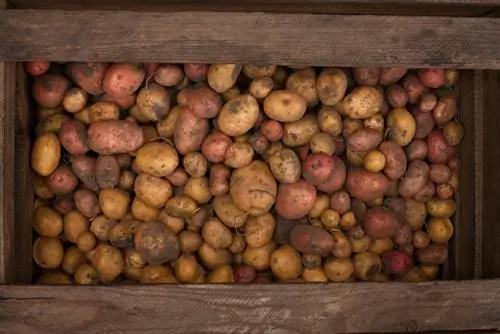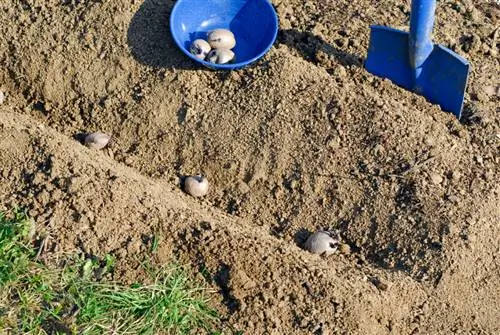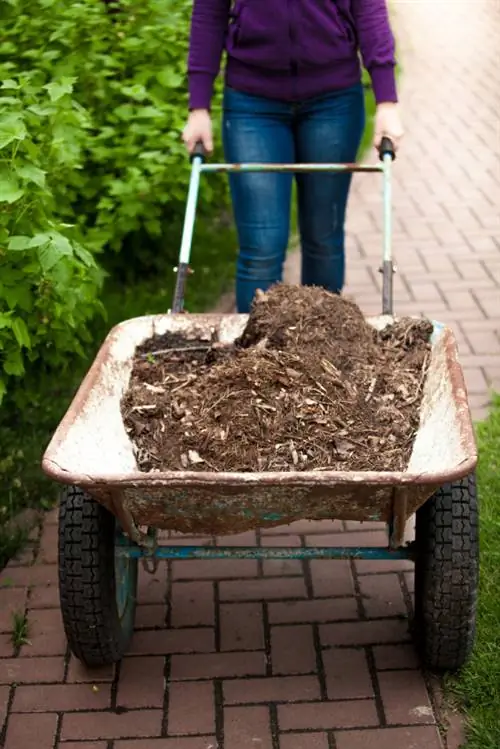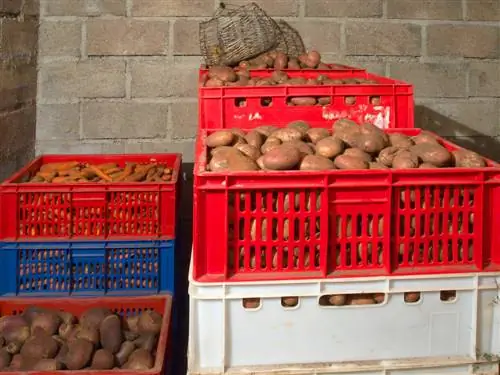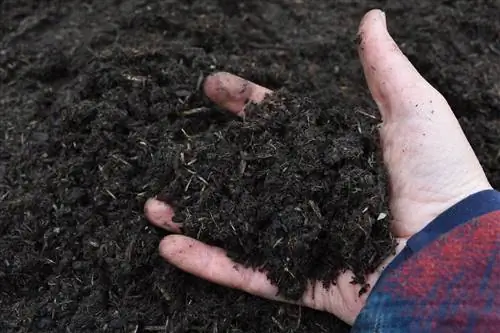- Author admin leonars@hobbygardeners.com.
- Public 2023-12-16 16:46.
- Last modified 2025-01-23 11:22.
There are various reasons why seed potatoes are kept in winter quarters. If these are rare and old varieties, storage makes sense. If you are aiming for a large harvest, you can save a lot of costs by using your own harvest potatoes.
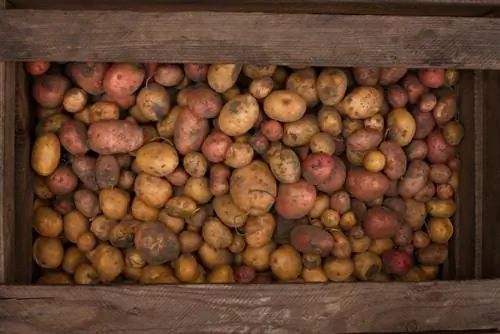
How do I store seed potatoes correctly?
Seed potatoes should ideally be stored at a temperature between two and four degrees, with a humidity of at least 80 percent and in dark conditions. Storage options include a bucket of quartz sand, a separate refrigerator or egg cartons.
What seed potatoes need
Constant environmental conditions are of great importance during storage. Potatoes breathe and warm up, which is prevented by a low temperature. If it is too warm, they break down reserve substances. They sprout prematurely and develop long, thin shoots. Pathogens find better conditions for survival. Frost also damages the vegetables. In addition, damp conditions should be avoided as they promote the development of putrefactive processes. If the air in the room is too low, the seed potatoes will dry out.
This is optimal:
- Temperature: between two and four degrees
- Moisture: at least 80 percent
- light: dark conditions
Store in bucket
Put a layer of quartz sand in a large bucket to protect the seed potatoes from the cold of the floor. Place a few seed potatoes loosely next to each other without touching them. Layer the filling material in the container, alternating with the potatoes. The last layer forms the substrate. Place the container in a dark and frost-free place. The sand prevents excessive water loss, so you can also choose a drier basement as winter quarters.
refrigerator
Small quantities are recommended for storage in a slightly moistened kitchen towel. Place the packets in a refrigerator that you do not otherwise use. Here you can ensure optimal temperature conditions. Storage in the kitchen refrigerator is not optimal as it is used every day. When you open the door, the temperature inside fluctuates and condensation forms.
Egg cartons
This variant requires good knowledge of room temperature and humidity, because problems quickly arise in unfavorable conditions. An egg carton offers a touch-free storage option. The material absorbs water and prevents the potatoes from rotting. Placement in a dark and cool basement room is recommended. If low room temperatures above zero degrees are guaranteed, storing the boxes in a bright and airy garden shed can theoretically also work. The risk of rot formation is low here. However, the tubers can dry out easily.

